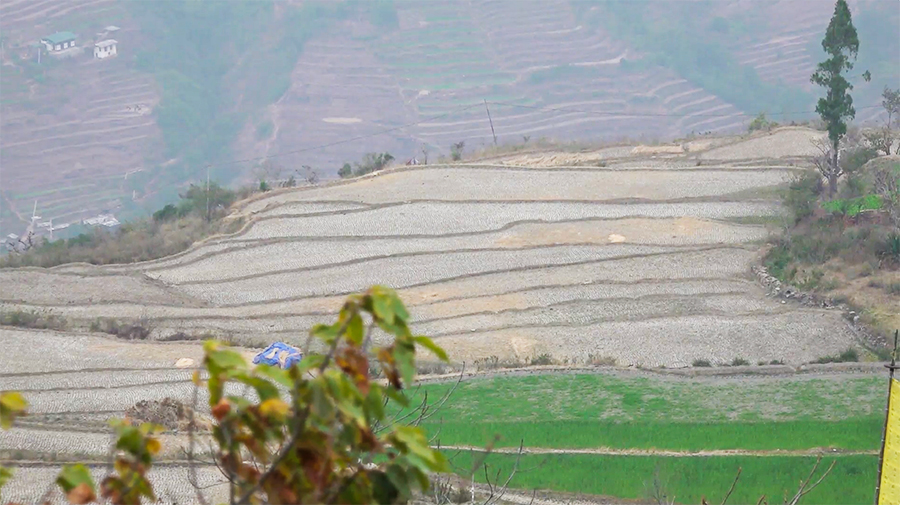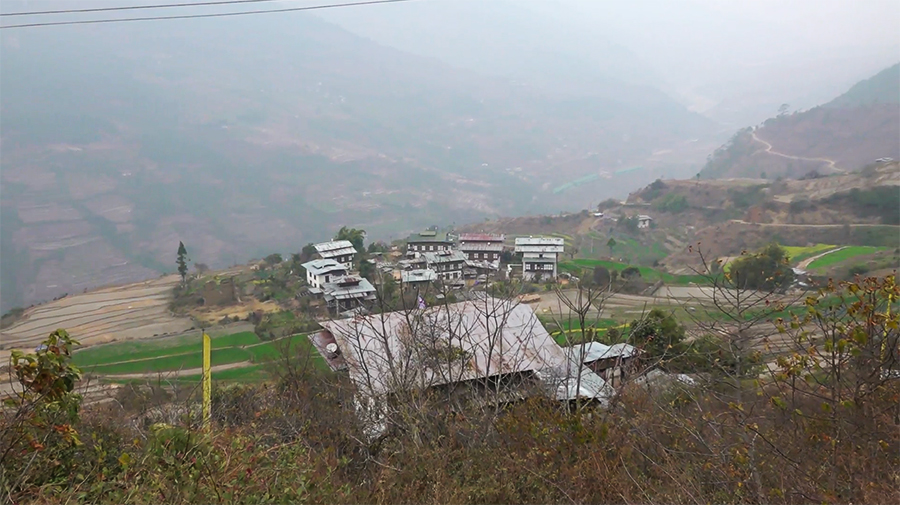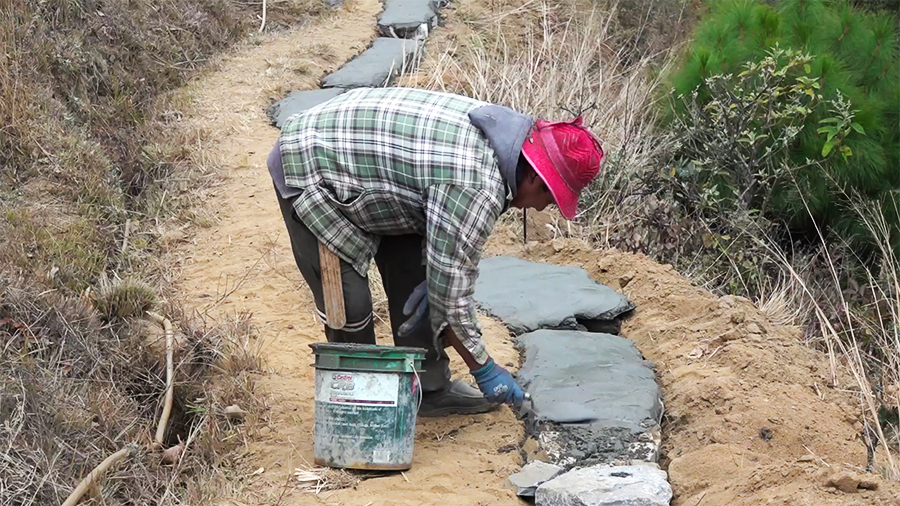 Farmers of Bjagphu Chiwog in Wangdue Phodrang’s Ruebisa Gewog can now cultivate rice without losing their harvest to wildlife. Their paddy fields are now guarded by chain-link fencing installed with support from the government. Up until now, farmers had to guard their paddy fields from wildlife day and night with some households unable to continue cultivation due to increasing human-wildlife issues.
Farmers of Bjagphu Chiwog in Wangdue Phodrang’s Ruebisa Gewog can now cultivate rice without losing their harvest to wildlife. Their paddy fields are now guarded by chain-link fencing installed with support from the government. Up until now, farmers had to guard their paddy fields from wildlife day and night with some households unable to continue cultivation due to increasing human-wildlife issues.
 Bjagphu Chiwog is located in a secluded area surrounded by forests. As a result, the village is frequented by wild animals damaging crops every year.
Bjagphu Chiwog is located in a secluded area surrounded by forests. As a result, the village is frequented by wild animals damaging crops every year.
This has discouraged farmers from engaging in agriculture works as extensively as in other places in the district.
They have been growing rice only for self-consumption and have been primarily focused on vegetable production as a source of livelihood.
According to the farmers, wild animals such as deer and wild boars mostly attack paddy saplings. Farmers have to start guarding their paddy fields almost immediately after transplantation and continue until harvest.
However, this is expected to change from this year. The government is spending more than Nu 11 M to install chain-link fencing around the chiwog.
 Almost 50 per cent of the chain-link fence installation works have been completed so far.
Almost 50 per cent of the chain-link fence installation works have been completed so far.
Excited, farmers are already planning to expand paddy cultivation with some aspiring to grow rice for commercial purposes.
Phub Wangchuk, Bjagphu Tshogpa said “So far, we had to sleep in the fields to protect our crops from wild animals. However, the chain-link fencing provided by the government will be of great benefit to us. Now, people in our community are also planning to cultivate in their fallow land as well.”
Seldon, a resident said “So far, I have not been able to cultivate paddy on a larger scale. I have only cultivated the land around my house, while most of my farmland remained fallow because I could not protect the crop from wild boars. Currently, I have cultivated paddy on only about an acre of land around my house. Leaving my land in the distant area fallow, I have been working on others’ land which are nearby. However, now, I am planning to expand my paddy cultivation since we will no longer have to guard our crops from wild boars.”
 The government is providing the budget to procure the chain-link fence while the farmers carry out the installation work themselves.
The government is providing the budget to procure the chain-link fence while the farmers carry out the installation work themselves.
Kuchung, a resident said “Until now, we used to lose almost 50 percent of our agricultural produce to wild animals every year. The government has provided us with chain-link fencing, and around 60 percent of the installation work has been completed. To date, I have cultivated paddy only on about one acre of land but I am now planning to expand it by another half an acre.”
Rinchen Dorji, another resident said “The government’s chain-link fence has encouraged us to workmore. We are also excited and utilizing our land judiciously. The chain-link fencing will be beneficial for us. We feel more secure and we are planning to cultivate all the land that has remained fallow until now. We now have full confidence in continuing our agricultural work.”
The installation work began in November last year and is expected to complete by May.
The 7.6-kilometer fencing will secure more than 120 acres of land in the chiwog.
Changa Dorji, Wangdue Phodrang
Edited by Phub Gyem









